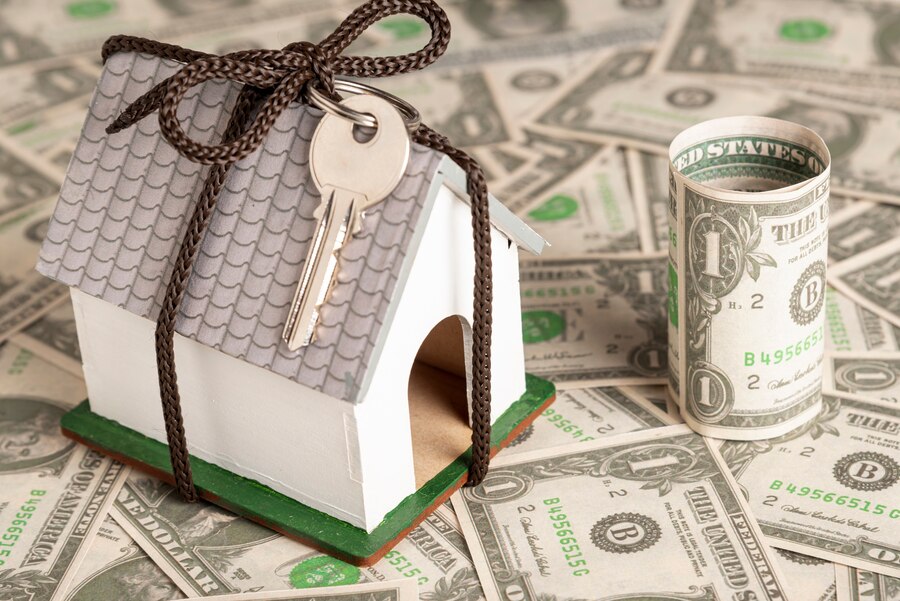How to Pay Down Your Mortgage Faster: A Complete Guide to Save Money

Paying down your mortgage, also known as amortizing, can be one of the smartest financial moves you make. This process reduces the principal balance of your loan, decreases the amount of interest paid over time, and can help you pay off your mortgage years ahead of schedule.
In this article, we’ll explore practical strategies to pay down your mortgage, maximize savings, and achieve financial freedom.
What Does It Mean to Pay Down a Mortgage?
Paying down your mortgage refers to reducing the principal balance on your loan through extra payments or strategic planning. This can be done in two main ways:
- Reducing the term: Making additional payments to shorten the total loan duration.
- Lowering monthly payments: Using extra payments to reduce your monthly mortgage amount.
Understanding how this works can empower you to manage your finances more effectively and save thousands of dollars in interest.
Benefits of Paying Down Your Mortgage
- Interest savings: Reducing your principal balance leads to lower interest charges over the life of the loan.
- Financial freedom: Paying off your mortgage sooner gives you greater flexibility to allocate funds elsewhere.
- Shortened loan term: Extra payments can shave years off your mortgage, allowing you to become debt-free faster.
- Peace of mind: Reducing debt provides a sense of security and financial stability.
Tips to Pay Down Your Mortgage Efficiently
1. Make Extra Payments Whenever Possible
Whenever you receive a bonus, tax refund, or any unexpected income, consider applying it toward your mortgage principal. Even small extra payments can have a significant impact on reducing the total amount you pay over the life of the loan.
- Example: A $5,000 extra payment on a mortgage with a 5% annual interest rate could save you thousands in interest over time.
2. Choose Between Lowering Payments or Shortening the Term
When paying down your mortgage, you often have the option to either lower your monthly payments or shorten the term of the loan.
- Shorten the term: Ideal if you want to save the most on interest and pay off the loan faster.
- Lower monthly payments: Best if you need to free up cash for other expenses.
3. Negotiate With Your Lender
Contact your lender to discuss options for additional payments or refinancing. Many lenders allow extra payments without penalties, and refinancing could offer better interest rates or terms.
4. Set Up a Mortgage Payoff Fund
Allocate a portion of your monthly budget to a separate savings account dedicated to extra mortgage payments. This ensures you have funds ready to make larger payments when possible.
When Should You Pay Down Your Mortgage?
Paying down your mortgage makes the most sense in these scenarios:
- High-interest rates: The higher your mortgage rate, the greater your savings from extra payments.
- Stable finances: Ensure you have an emergency fund before allocating extra money to your mortgage.
- Long-term savings: Use online mortgage calculators to compare costs with and without extra payments to see the potential savings.
Practical Strategies for Paying Down Your Mortgage
- Use Annual Bonuses or Tax Refunds: Commit a portion of these windfalls to your mortgage.
- Cut Back on Non-Essential Spending: Redirect money saved on discretionary expenses to your loan.
- Combine Investments and Payoffs: If investment returns are lower than your mortgage interest rate, prioritize paying down the mortgage.
Mortgage Payoff Example
Let’s consider a $300,000 mortgage with a 30-year term and a 5% interest rate:
- Without extra payments: Total interest paid over 30 years would be approximately $279,000.
- With an annual extra payment of $5,000: You could shorten the term by 6 years and save over $90,000 in interest.
Frequently Asked Questions
1. Can I pay down my mortgage with small amounts?
Absolutely! Even small extra payments can reduce the total interest and shorten the loan term.
2. Is paying down a mortgage better than investing?
It depends on your mortgage rate and expected investment returns. If your mortgage rate is higher than potential investment gains, paying down the loan may be a better choice.
3. Does my mortgage agreement allow for extra payments?
Most lenders allow extra payments, but it’s essential to confirm with your lender to avoid any penalties.
Paying down your mortgage is a powerful way to save money and build financial freedom. With a solid plan, disciplined budgeting, and strategic decisions, you can achieve your goal of becoming mortgage-free faster than you ever imagined!